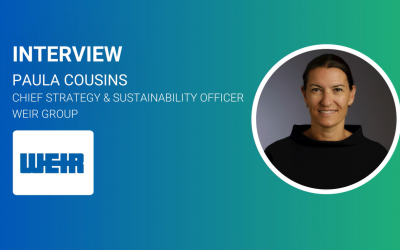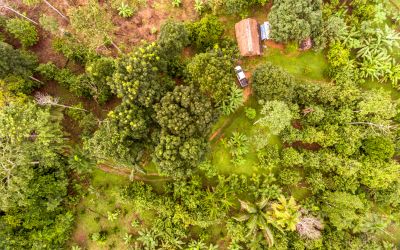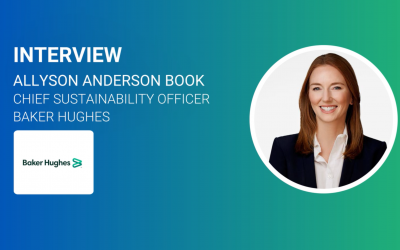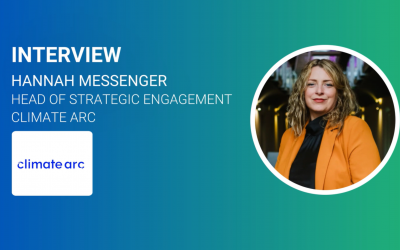Mattias Frumerie on how Sweden aims to become the first fossil free country in the world
Ahead of the Industry Transition Summit, taking place on the 18 & 20 May, Climate Action caught up with Mattias Frumerie, Swedish Head of Delegation to UNFCCC at the Swedish Ministry of Environment, to discuss how Sweden aims to become the first fossil free country in the world and what a successful COP will look like.
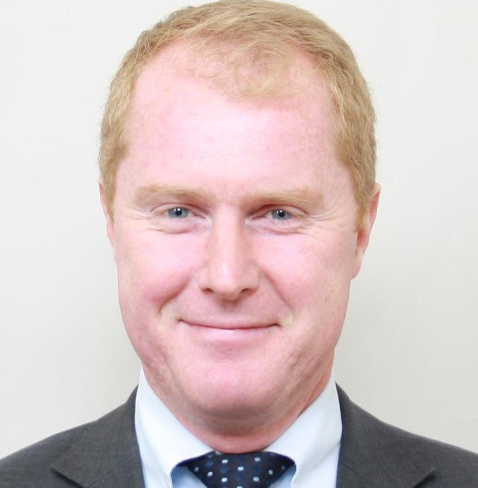
Ahead of the Industry Transition Summit, taking place on the 18 & 20 May, Climate Action caught up with Mattias Frumerie, Swedish Head of Delegation to UNFCCC at the Swedish Ministry of Environment, to discuss how Sweden aims to become the first fossil free country in the world and what a successful COP will look like.
You’re speaking as part of our transition summit in our Roadmap to COP26. How are you preparing for COP26, and what does a successful COP look like in your opinion? (In regards to the outcomes of negotiations)
Preparing for COP26 is my day – and night – job! Preparations include fine-tuning Swedish positions, developing EU positions and hopefully being able to agree with partners within UNFCCC in order for us all to be as prepared as we can once we get to Glasgow. We really need to agree the final elements of the Paris rulebook.
COP will provide us (hopefully) with global agreements on climate action. How can we implement this global roadmap locally? Turning the talks/agreements into actions within our realities?
First, let’s recall that we aim for COP26 to deliver 2 things – an agreement on the rulebook, as well as being a manifestation of Parties new Nationally Determined Contributions. The NDCs are not up for negotiation at COP26, they will need to be decided by each country before COP26. The NDCs provide a roadmap for implementation nationally. In Sweden, we have implemented the Paris Agreement through our Climate Policy Framework and our Climate law. Our regulatory framework sets out our goal to be fossil free by 2045 at the latest, in turn providing steer to business actors and society at large for the transition to climate neutrality.
Sweden is striving to become the first fossil fuel free country in the world, with particular focus on its industrial sector. What do you identify as the biggest obstacles and opportunities that will come from accelerating decarbonisation developments?
Transportation is a key sector for further decarbonisation in Sweden, but the actors within the transportation sector have also been part of developing the in total 22 roadmaps for climate neutrality within the government initiative Fossil Free Sweden. It is truly inspiring and so encouraging to see the engagement of Swedish business actors in the transition. Green steel is one of the many exciting opportunities opening up with decarbonisation.
Sweden provided some 7 billion SEK for climate action in 2019. What/who do you view as responsible for the financial mechanism of decarbonisation especially in the industrialised sectors, and how can financial flows align with the Paris goals? Should we be looking to the government, businesses, or investors to achieve this?
All actors have to do their part! We have committed in the Paris Agreement to make all financial flows consistent with a pathway towards low greenhouse gas emissions. Governments across the world need to integrate climate action in national budget and planning processes, which will facilitate resource mobilisation as well as developing conducive regulatory frameworks. I’m encouraged by Swedish business actors and investors aligning their investments with the Paris goals.
Obviously COVID-19 has been upsetting for most of the global population, but as we move into a post-pandemic world there has been a focus on a green recovery. What are your hopes/concerns for a climate-conscious pathway out of the pandemic?
I’m still hoping for a green recovery, but I’m concerned that we as a global community are not doing enough. IMF tells us governments globally have invested some 15 000 billion USD in fiscal measures to alleviate the economic crisis caused by the pandemic. These massive investments provide an opportunity to accelerate implementation of the Paris Agreement and Agenda 2030, but there is also a risk – if we don’t use this money wisely, we might end up coming out of the covid crisis having locked ourselves in further dependency of fossil fuels.
Where do you think the biggest drivers of climate action have come from in the past? Do you anticipate any changes to these drivers both post-pandemic and post-COP26?
Science has been, is and will be a key driver of climate action. Youth and civil society have raised their voices. Business is stepping up. Governments need to build on all these drivers. Increasingly we’re seeing an approach to build a holistic response to the vulnerabilities highlighted by the pandemic, ensuring a policy response encompassing climate action, securing biodiversity, health and gender.
Mattias Frumerie is speaking at the Industry Transition Summit next week! Register now to connect with a growing network of key players in industry and hard to abate sectors to further drive decarbonisation through policy and regulation, to innovation, technology and investment.

